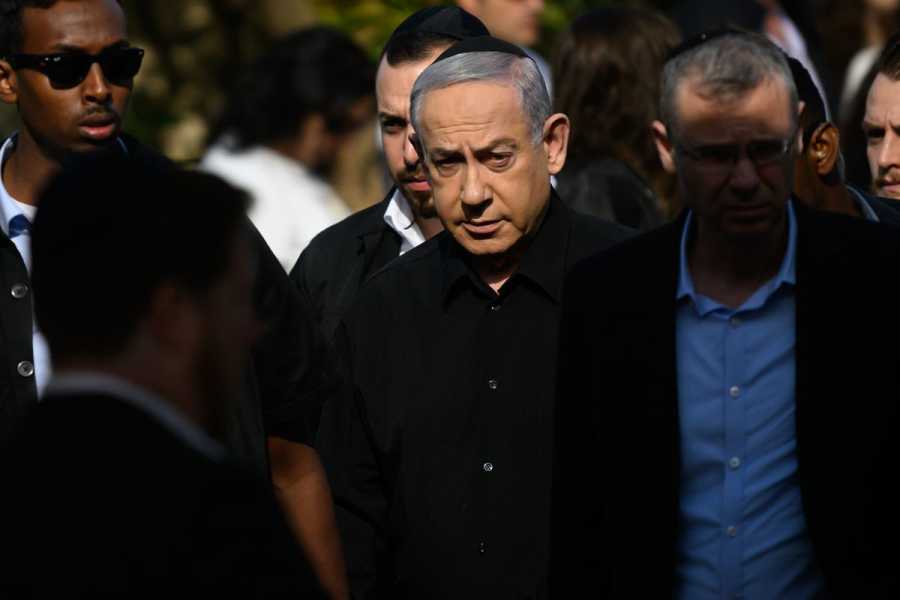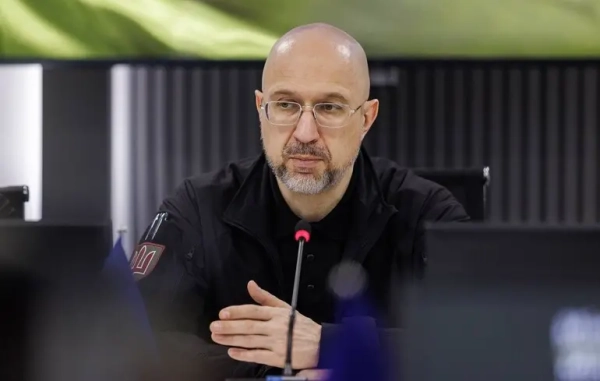Netanyahu’s plan is wildly disconnected from US priorities — and reality.

Prime Minister Benjamin Netanyhu attends the funeral for First Sgt. Maj. Gal Meir Eisenkot in the Herzliya cemetery on December 8, 2023, in Herzliya, Israel. Alexi J. Rosenfeld/Getty Images Nicole Narea covers politics and society for Vox. She first joined Vox in 2019, and her work has also appeared in Politico, Washington Monthly, and the New Republic.
Israeli Prime Minister Benjamin Netanyahu has unveiled his most detailed plans yet for the future of Gaza. However, there is a problem: The plans are both wildly out of step with what the US wants and would generate significant opposition within Gaza and worldwide.
Netanyahu has been under increasing pressure to develop a long-term plan for Gaza as Israel’s military operations in the region approach their sixth month. In response to Hamas’s October 7 attack on Israel and its taking of roughly 250 hostages, the Israeli military campaign has destroyed large swaths of Gaza and has killed nearly 30,000 Palestinians, according to the latest figures from the Gaza Health Ministry. Israel is reportedly contemplating an escalation of hostilities with an attack on the southern city of Rafah, now home to more than 1 million internally displaced Palestinian refugees.
Netanyahu reportedly told members of Israel’s security cabinet Thursday night that, after eliminating Hamas — the Israeli government’s stated, likely impossible goal in its war on Gaza — he wants to completely demilitarize Gaza, close its border with Egypt (which Egypt currently administers), and exert “security control over the entire area west of Jordan,” including Gaza and the occupied West Bank.
CNN reported that the plan also calls for cutting off funding to Gaza from Qatar (which has previously sent Gaza as much as $360 million per year to fund its Hamas-controlled government with Israel’s endorsement) and for Israel to preside over a “de-radicalization” of the Palestinian education system, which Netanyahu has accused of spreading antisemitism. And Netanyahu said that Israel should reject “international dictates regarding a permanent settlement with the Palestinians” in defiance of US President Joe Biden’s calls for a two-state solution.
Netanyahu might not survive as prime minister long enough to see this plan implemented, given increasing Israeli calls for a change in leadership. But it’s not clear that any successor would embrace a radically different plan. And it’s a plan that would put Israel at odds with a world that’s beginning to sharpen its critiques of the war as the suffering in Gaza deepens.
“Now, it’s possible that by sheer force and indifference to international law, Israel could move forward with a total military occupation of Gaza — but if they do, the result will be morally unconscionable and accelerate the spiral of harms caused by the Gaza war, including death, humanitarian misery, and regional war,” said Thanassis Cambanis, who focuses on Middle East issues as director of the think tank Century International.
Netanyahu is out of step with Israel’s allies — and the reality on the ground
How to end the war in Gaza has been a point of friction between Israel and the US, its closest ally.
Back in December, the Biden administration told the Israelis to wrap up the war in a matter of weeks, not months, and pushed for the creation of a Palestinian state governed by the Palestinian Authority, which currently controls the West Bank.
More than two months have passed, and Netanyahu’s postwar plan shows that the US is no closer to securing that two-state solution.
That’s despite agonizing negotiation efforts that the US continues to pursue amid growing international calls for a ceasefire. For the third time since the war started, the US vetoed a United Nations Security Council resolution calling for an immediate ceasefire earlier this week on the basis that it would hamper ongoing negotiations.
But the US also said it would back a resolution supporting a temporary ceasefire, which is further than it was willing to go before — signaling that American goodwill may be running out. The White House did not respond to a request for comment about the plan.
Netanyahu’s postwar plan tests the limits of American goodwill. It’s so far from the US position that it may be designed more to send diplomatic signals than to be a blueprint for future policies. Israel is currently engaged in intense (and so far fruitless) negotiations meant to return the estimated 132 hostages still held by Hamas and its allies. Netanyahu is under rising domestic pressure to secure a hostage deal, and he may be using this plan as a demonstration of how far Israel is willing to go in order to force those at the negotiating table to take Israel’s hostage proposals — which could lead to a cessation of hostilities — more seriously.
There’s also a question of how operationally feasible this plan even is. It would require buy-in from Egypt, which it’s not clear Israel has, especially given Egyptian officials’ recent threats that they might withdraw from their landmark peace treaty with Israel, the Camp David Accords.
And the plan necessitates that Israel eliminate Hamas by sheer force, a goal that even one top Israeli official admitted to be unrealistic. Israel says it has eliminated more than half of Hamas’s military units in Gaza, but some top Hamas brass, including the group’s leader Yahya Sinwar, have proved elusive.
At the same time, Israel has already changed the status quo in Gaza in ways that may have once seemed far-fetched. Over half of Gaza’s buildings had been destroyed by early January, and that was before the Israel Defense Forces expanded their operation into the south; the United Nations’ humanitarian chief described Gaza as uninhabitable just three months into the war.
Shipments of food and medicine have plummeted to a fraction of what they were before the war, reporters have been killed and forced out, and the US has defunded UNWRA, one of the largest sources of aid in Gaza. “Make no mistake — what Netanyahu is proposing is the complete destruction of Palestinian society and self-determination in Gaza, and the imposition of an open-ended military occupation,” Cambanis said.
If the plan is implemented, Cambanis said to expect Palestinians to oppose any attempt to divide Gaza into isolated occupation zones controlled by the Israeli military and run not by Palestinian leaders with local legitimacy but by administrators selected by Israel. That wouldn’t mean the end of the fighting, but rather would fuel further hostilities in which more Palestinians would die, supporting South Africa’s claim at the International Court of Justice that Israel is committing genocide.
“Palestinians, whether or not they support Hamas, will support resistance — civil, political, and military — to the violent evisceration of their society,” Cambanis said. “Netanyahu’s plan will certainly buttress the genocide case against Israel at the International Court of Justice.”
Sourse: vox.com






